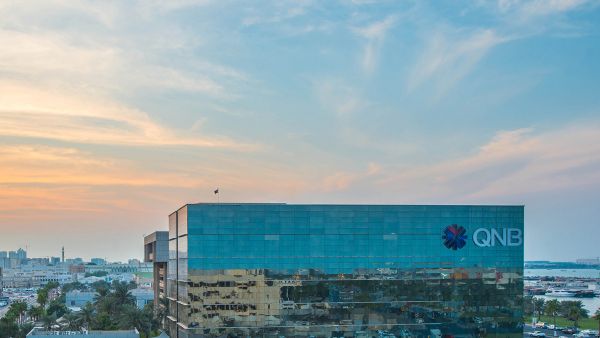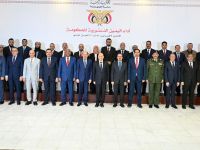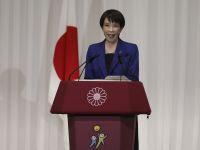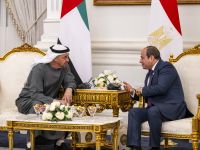Qatar GDP Growth to Average 2.2 Percent for 2017, According to QNB

Qatari economy will continue to be resilient against the blockade and the growth momentum is expected to pick up in the fourth quarter resulting in annual GDP growth of 2.2 percent in 2017, according to QNB.
Citing the Ministry of Development Planning and Statistics’ (MDPS) latest document on Qatar’s Q3 GDP, QNB’s weekly economic commentary noted that real GDP growth accelerated to 1.9 percent year over year in Q3, up from 0.3 percent the previous quarter. The strong upturn was led by the hydrocarbon sector which gained 0.2 percent in Q3 compared to a contraction of 3.1 percent in Q2. The non-hydrocarbon sector remained broadly stable at 3.6 percent in the quarter versus 3.7 percent in Q2.
“Overall, the economy continues to be resilient against the blockade and we expect momentum to pick up in the fourth quarter resulting in annual GDP growth of 2.2 percent in 2017,” QNB analysts noted.
Qatar’s hydrocarbon sector was the primary driver of growth in Q3. The improvement in growth likely reflects higher natural gas output as oil production declined 8.4 percent from a year ago due to Qatar’s compliance with the Opec production cut agreement. Gas output likely rose due to production normalisation after temporary shutdowns for maintenance in the first half of the year.
Additionally, there have been reported higher sales of liquefied natural gas (LNG) on the spot market to China as the country switches from coal power generation to cleaner gas. Chinese nominal imports from Qatar increased 167.3 percent in Q3, their fastest rate of growth in over seven years, the overwhelming majority of which is LNG.
Non-hydrocarbon growth was broadly stable and there were encouraging signs about firming underlying strength in the sector. Growth in the manufacturing and finance sectors, the first and third largest sub-sectors, both increased in Q3. Manufacturing rose 5.0 percent in the quarter marking its fastest growth in three years likely due to increased production capacity coming online.
The financial sector has rebounded, growing by 5.5 percent in Q3 compared to 4.8 percent growth in Q2. The sector was temporarily impacted following the blockade. The gains in these sectors were offset by some weakness in wholesale and retail trade, real estate, hospitality and information and communication sectors. But overall, growth in the non-hydrocarbon sector remained resilient.
QNB projects real GDP growth will average 2.2 percent for the full year in 2017. Rising public sector credit, the fading impact of the blockade and renewed consumer and business confidence will drive a further acceleration in Q4. Growth in 2018 also looks promising.
The authorities unveiled their fiscal budget for 2018 last month, outlining higher spending but also stronger revenues resulting in a smaller projected deficit. Spending increases are targeted towards education, health and construction projects in advance of the FIFA 2022 World Cup.
In addition, the government plans to award QR29bn ($D8bn) in contracts to the private sector to encourage diversification, a measure taken as part of Qatar’s response to the blockade.
The authorities have been proactive by initiating projects in long-term economic self-sufficiency and sustainability within the private sector. Consequently, new areas for investment are being opened up in transport, logistics, the production of food and other basic materials.
Overall, QNB is confident that these initiatives will ensure robust and durable long-term growth for Qatar.
The Peninsula
Background Information
Qatar National Bank
Qatar National Bank (QNB), established in 1964 as the country’s first Qatari-owned commercial bank, has an ownership structure split between the Qatar Investment Authority (50%) and the private sector (50%).
QNB has steadily grown to be among the largest banks in the region and is by far the leading financial institution in the country, with a market share approaching 40% of banking sector assets.
QNB offers a full range of Retail, Corporate, Investment, Treasury, Wealth Management, and Islamic Banking products and services for individuals, corporate institutions and government entities in Qatar as well as internationally.
QNB has the largest distribution network in Qatar, comprising 44 branches and offices (including 3 mobile branches), in addition to 12 Islamic branches and offices operated by QNB Al Islami, and more than 160 ATMs.
QNB was the first conventional bank in Qatar to offer Shari'a-compliant banking products and services through QNB Al Islami, established in 2005.
QNB’s international presence is rapidly expanding to include new locations around the world to supplement the long established branches in London and Paris. Currently QNB has presence in 23 countries including branches in Yemen, Oman Kuwait & Singapore as well as Representative Offices in Iran & Libya. An Islamic branch was recently inaugurated in Sudan, offering a full range of Islamic banking services and products.






